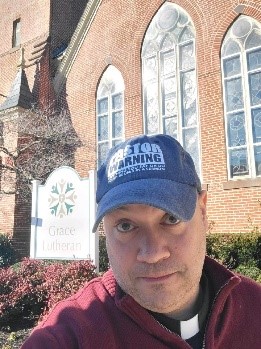
- a parable about the uselessness of hoarding wealth in response to a request for a ruling on “the family inheritance”
- a teaching to sell your possessions, and an implication that this will create “riches” in the kingdom of heaven
- a teaching about how family division is inevitable (probably calling back to the family inheritance question)
And in the next month or so we will hear:
- Conflicting teachings about what constitutes “work” on the sabbath (hint: the rich could obey the Pharisee’s teaching, and the poor could not)
- A teaching about invitation and hosting that explicitly instructs those who want to follow to throw parties for the poor, not the rich
- Another teaching about how truly following Jesus means giving up “your possessions”
- Jesus being criticized for eating with tax collectors
- A parable about property management and debt forgiveness
- A parable about the eternal fate of the poor, and of the rich who ignore them
In the Bible story as presented in Luke, Jesus is teaching against a religious school of thought that is based in the Jerusalem temple, one that emphasizes theoretical purity… by, in practice, coercing people to pay their taxes, debts, and religious tithes to and through the temple, and excluding all who wouldn’t or couldn’t. This is an age-old issue with organized religion: doing “what God wants” is too often conflated with “obey the rules the religion has created, especially the ones about not giving your money to anything but that which is approved by the religion.” Jesus found this to be hypocritical (“you hypocrites!” is one of his favorite aphorisms), because at that time, as so often in religious history, it was creating a pay-to-play system with eternal implications. You might recall that Luther had a similar issue with a similar system in his time.
In our time… does this happen? I would argue that it does, that there are “religions” both traditional and secular that teach strict purity about how “good people” (or “saved” people?) are supposed to live, with an emphasis on what they’re supposed to support financially (Our Team, Our Side, Our Kind of Thing!) and what they’re not (everything else!). In my opinion, Jesus in the gospel of Luke teaches against this: does it corrupt a person to break bread with a Roman, or pay taxes to the emperor, or help a fellow human on the “day of rest”? It does NOT, said Jesus. What actually corrupts: using purity teachings to justify NOT caring for the people around you, the human beings who are part of the community. That, Jesus said, was what his opponents, the teachers of the temple way, were doing.
Those teachers of course felt differently, and took great offense to what Jesus was saying… in large part because he was going right at their religion-approved financial teachings and system. I’m on the side of Jesus, and so is our church. Lutheranism has always resisted purity teaching and encouraged support of the local faith community AND participation in the wider world, including service and support of those who are working to make the world more just and peaceful, whether they’re in the church or not. Our participation and practice of faith is voluntary; we do not teach eternal consequences or excluding corruption upon people who are for whatever reason unwilling or unable to support our faith community and the work we do.
Everything that we receive is a freely given gift, and we are grateful for it. Thank you for being a supporter of Grace, and thank you for renewing that personal commitment each and every week.
Join us THIS week! We can’t wait to see you! — God’s grace and peace, Pastor Matt
